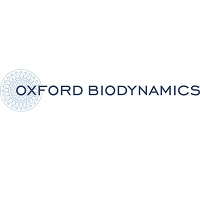Oxford BioDynamics Plc (LON: OBD), a biotechnology company focused on the discovery and development of epigenetic biomarkers based on regulatory genome architecture, for use within the pharmaceutical and biotechnology industry, announced that it has, in line with its strategy to expand in the US, formed Oxford BioDynamics Inc, a fully-owned subsidiary of Oxford BioDynamics plc and appointed Glen Ferguson as Senior Vice President, USA, to lead the Group’s business development activities in the United States.
Christian Hoyer Millar, Chief Executive Officer of Oxford BioDynamics, said:
“Glen is a strong addition to the OBD leadership team, bringing a wealth of experience in global corporate development and strategic partnerships. Glen’s appointment, and the formation of our new US subsidiary, reinforce our commitment to our business development, particularly in the US, the world’s largest healthcare market.”
Glen Ferguson joins OBD from HealthTell Inc, where he was Vice President, Corporate Development from 2014. At HealthTell, Glen developed and led strategic growth initiatives driving the personalised medicine offering to pharmaceutical and companion diagnostic businesses. Glen brings significant experience in licensing and contract negotiation, developing strategic alliances, and expertise in the field of companion diagnostics, gained in a life sciences industry career spanning over 25 years. Previously, he held senior positions at ApoCell, where he was Vice President, Molecular Biomarkers, Beckman Coulter, Genaissance Pharmaceuticals, and Bristol Myers Squibb, amongst others.
Glen will lead OBD’s US-based business development activities, working closely with the Group’s executive management team to serve OBD’s US partners, customers and collaborators, several of whom Glen has worked with in his previous roles. He will also take up the position of President of Oxford BioDynamics Inc.

